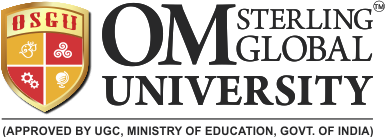Skills Developed in a Health Care Nutrition Program at OSGU
A Health Care Nutrition Program at Oceanic School of Global University (OSGU) offers a comprehensive curriculum designed to equip students with the necessary skills and knowledge to succeed in the dynamic field of healthcare nutrition. Whether pursuing a B. Voc in Nutrition and Health Care Science, specialized health care nutrition program, nutri health care courses, or an OSGU vocational course, students can expect to gain a range of valuable skills that will prepare them for rewarding careers in the healthcare industry.
1. Nutritional Assessment and Evaluation Skills
Students in Nutri and Health Care Courses at OSGU will develop proficiency in conducting nutritional assessments and evaluations. They will learn how to assess individuals' dietary needs, analyze nutritional deficiencies, and identify risk factors related to nutrition-related diseases. By mastering these skills, students will be able to create personalized nutrition plans tailored to meet the specific needs of clients or patients.
2. Knowledge of Macro and Micronutrients
One of the fundamental aspects of a health care nutrition program is the understanding of macro and micronutrients. Students will deepen their knowledge of essential nutrients such as carbohydrates, proteins, fats, vitamins, and minerals, as well as their roles in the body. This knowledge is crucial for designing balanced and nutritious meal plans to support overall health and well-being.
3. Diet Planning and Meal Preparation
Students will gain practical skills in diet planning and meal preparation to promote healthy eating habits. They will learn how to create balanced meal plans that consider individual dietary requirements, cultural preferences, and health goals. Additionally, students will develop culinary skills and cooking techniques to prepare nutritious and delicious meals for clients or patients.
4. Medical Nutrition Therapy
A Health Care Nutrition Program at OSGU may include training in medical nutrition therapy, focusing on the use of specialized diets to manage various health conditions. Students will learn how to apply nutrition principles to treat diseases such as diabetes, hypertension, and obesity through dietary interventions. This skill is essential for providing effective nutrition support in clinical settings.
5. Nutrition Counseling and Communication
Effective communication is key in the field of healthcare nutrition. Students will develop strong interpersonal skills and learn how to communicate nutritional information clearly and compassionately to clients or patients. They will also receive training in nutrition counseling techniques to support behavior change, promote healthy eating habits, and empower individuals to take control of their health.
6. Understanding of Nutritional Biochemistry
A Health Care Nutrition Program may include coursework in nutritional biochemistry, providing students with an in-depth understanding of how nutrients interact within the body at a cellular and molecular level. This knowledge is essential for comprehending the physiological processes related to nutrition and the impact of nutrients on overall health.
Read Also: How Does a B.Voc in Pharmaceutical Chemistry Differ from Traditional Degrees?
7. Critical Thinking and Problem-Solving Skills
Students will enhance their critical thinking and problem-solving skills through case studies, research projects, and real-world scenarios. They will learn how to analyze complex nutritional issues, evaluate evidence-based research, and make informed decisions to address nutrition-related challenges effectively.
8. Knowledge of Nutritional Medicine
Students may acquire knowledge of nutritional medicine, which involves using food and nutrients as therapeutic interventions to prevent and manage diseases. Understanding the role of nutrition in supporting pharmacological treatments and promoting recovery is a valuable skill for healthcare practitioners in the field of nutrition.
9. Cultural Competency and Diversity Awareness
Health care nutrition programs often emphasize the importance of cultural competency and diversity awareness in providing nutrition services. Students will learn how to respect and accommodate cultural differences, dietary preferences, and traditions when developing nutrition plans for clients from diverse backgrounds.
10. Professional Ethics and Legal Standards
Students will be introduced to the ethical and legal considerations related to the practice of healthcare nutrition. They will learn about professional standards, confidentiality requirements, and ethical guidelines governing the provision of nutrition services. Understanding these principles is essential for practicing responsibly and ethically in the healthcare field.
In conclusion, a Health Care Nutrition Program at OSGU offers a comprehensive educational experience that develops a wide range of skills essential for success in the field of healthcare nutrition. Whether pursuing a B. Voc in Nutrition and Health Care Science, specializing in health care nutrition, exploring nutri health care courses, or acquiring practical skills through OSGU vocational training, students can expect to graduate with the expertise needed to make a positive impact on individuals' health and well-being. By honing skills in nutritional assessment, diet planning, communication, critical thinking, and cultural competence, graduates are well-prepared to provide high-quality nutrition services in diverse healthcare settings.

